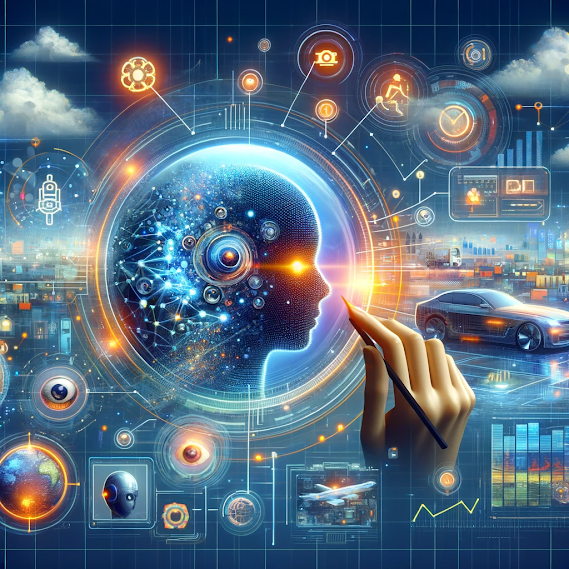Harnessing Generative AI in ManAufacturing: A Strategic Move Towards Innovation and Efficiency
Harnessing Generative AI in Manufacturing: A Strategic Move Towards Innovation and Efficiency
The Google Cloud Gen AI Benchmarking Study (July 2023) reveals a striking statistic: 82% of organizations believe that #generativeAI will significantly change or transform their industry. This sentiment is particularly resonant in the manufacturing sector, where generative AI presents a plethora of opportunities to revolutionize operations and drive innovation. Here, we delve into five impactful use cases for manufacturers to leverage generative AI, integrating #SEO keywords such as #AIassistants, AI for business, #AI tools for document summarization, and AI tools for data analytics.
Machine-generated Events Monitoring: In the quest for enhanced operational efficiency, generative AI emerges as a crucial tool. By leveraging #AI for machine-generated events monitoring, manufacturers can significantly reduce downtime. This application of generative AI involves analyzing data from machinery to predict and prevent potential failures, ensuring uninterrupted production processes.
Customer Service Automation: In today's fast-paced world, customer service automation stands as a key differentiator for businesses. Generative AI can automate and accelerate customer service interactions, such as product troubleshooting and ordering replacement parts. This not only provides a value-added customer experience but also frees up human resources for more complex tasks.
Document Search and Optimization: The power of generative AI extends to streamlining document search processes and optimizing inventory levels. This application is particularly valuable in managing large volumes of documents and data. AI tools for document summarization can efficiently analyze and condense information, aiding in decision-making and ensuring optimal inventory management.
Predictive Maintenance: The application of generative AI in predictive maintenance is a game-changer for the manufacturing industry. By anticipating machine failures and reducing defects, manufacturers can save on costs and enhance product quality. This use of #AI tools for data analytics involves analyzing patterns and trends from machine data to predict and prevent future issues.
Design Optimization: Generative AI is transforming the manufacturing process through innovative product design, efficient resource allocation, and continuous learning. This aspect of AI for business allows for the exploration of various design alternatives, optimizing products for performance, cost, and sustainability.
The Broad Spectrum of Generative AI Applications in Manufacturing
The potential applications of generative AI in manufacturing extend beyond these five use cases. From supply chain optimization to advanced analytics, #generativeAI is a versatile tool that can be applied across various domains. AI assistants, for example, can aid in complex decision-making processes, offering insights and recommendations based on vast data sets.
Staying Ahead of the Curve with Generative AI
In an industry as competitive as manufacturing, staying ahead of the curve is paramount. Embracing generative AI not only streamlines operations but also fosters a culture of innovation. Manufacturers that leverage these advanced AI tools and applications can expect to see significant improvements in efficiency, product quality, and customer satisfaction.
Ethical Considerations and Future Outlook
As with any technological advancement, the integration of generative AI in manufacturing comes with its set of ethical considerations. Ensuring data privacy, addressing potential biases, and maintaining human oversight are essential in the responsible deployment of these technologies.
The transformative power of generative AI in the manufacturing industry is undeniable. From enhancing operational efficiency to driving innovation in product design, the applications of AI in this sector are vast and varied. By harnessing the capabilities of #AI tools for document summarization, data analytics, and predictive maintenance, manufacturers can not only optimize their processes but also stay competitive in a rapidly evolving business landscape. As the industry continues to evolve, the strategic integration of generative AI will undoubtedly play a critical role in shaping the future of manufacturing.

.png)
.jpeg)

.jpg)
Comments
Post a Comment